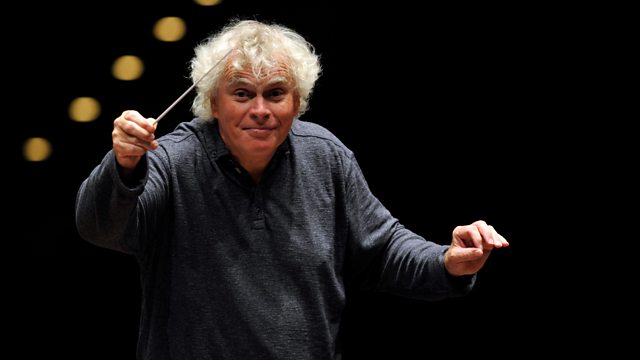
London Symphony Orchestra play Adès and Vaughan Williams
A new dawn for live music after the pandemic: ����ý Proms, the UK's greatest classical music festival, is back with a shorter, socially-distanced season.
Thomas Adès: Dawn (����ý commission: world premiere)
Ralph Vaughan Williams: Symphony No. 5 in D major
London Symphony Orchestra
Sir Simon Rattle, conductor
Despite the profound disruption that Covid 19 has caused to live music everywhere, ����ý Proms returns to the airwaves this summer. It's a much shorter season than usual and there is no audience in the Royal Albert Hall in London but the line-up of musicians is as impressive as ever.
In this visit to the 2020 season on ����ý World Service, London Symphony Orchestra, one of UK’s finest, with their music director Sir Simon Rattle play a new work by the contemporary British composer Thomas Adès and the Fifth Symphony by Ralph Vaughan Williams.
The subtitle of the Adès work is ‘Chacony for orchestra at any distance’. It references not just a musical form from the Baroque, much loved by the likes of Purcell, but also uncertainty about what exactly social distancing means for orchestral musicians in a live concert. And the composer has expanded the usual meaning of ‘distance’ to a cosmic scale: he said that the inspiration behind the piece was an image of dawn constantly breaking over different parts of the Earth as seen from space.
The first performance of Vaughan Williams’s Fifth Symphony took place at the Proms in 1943, at the Royal Albert Hall, when the composer was in his early 70s. As it was his first major work in a number of years, it was an eagerly awaited occasion. The Prommers on that summer evening were treated to a radiant composition of serenity and grace, quite a contrast to the events of World War 2 then unfolding. For several previous decades, Vaughan Williams had been working on an opera based on Pilgrim's Progress by John Bunyan. Afraid that he might not be able to finish it, he used some of the music in the symphony and the spirit of that 17th century parable suffuses the orchestral writing. As Neville Cardus, one of the prominent critics of the day, wrote: "The Fifth Symphony contains the most benedictory and consoling music of our time."
(Photo: Sir Simon Rattle conducts the LSO in 2018 Credit: Robbie Jack/Corbis via Getty Images)
Last on
More episodes
Previous
You are at the first episode
Broadcasts
- Sat 5 Sep 2020 13:06GMT����ý World Service except News Internet
- Sat 5 Sep 2020 18:06GMT����ý World Service
- Sun 6 Sep 2020 11:06GMT����ý World Service
